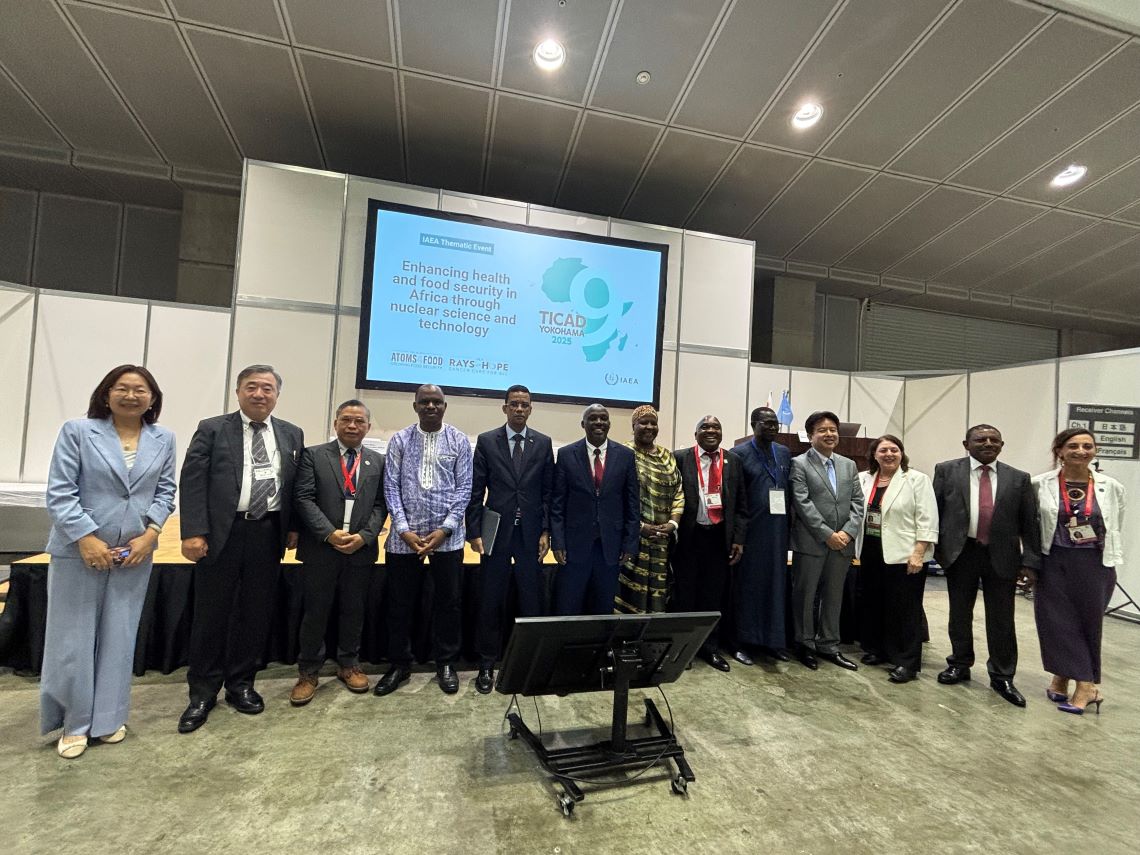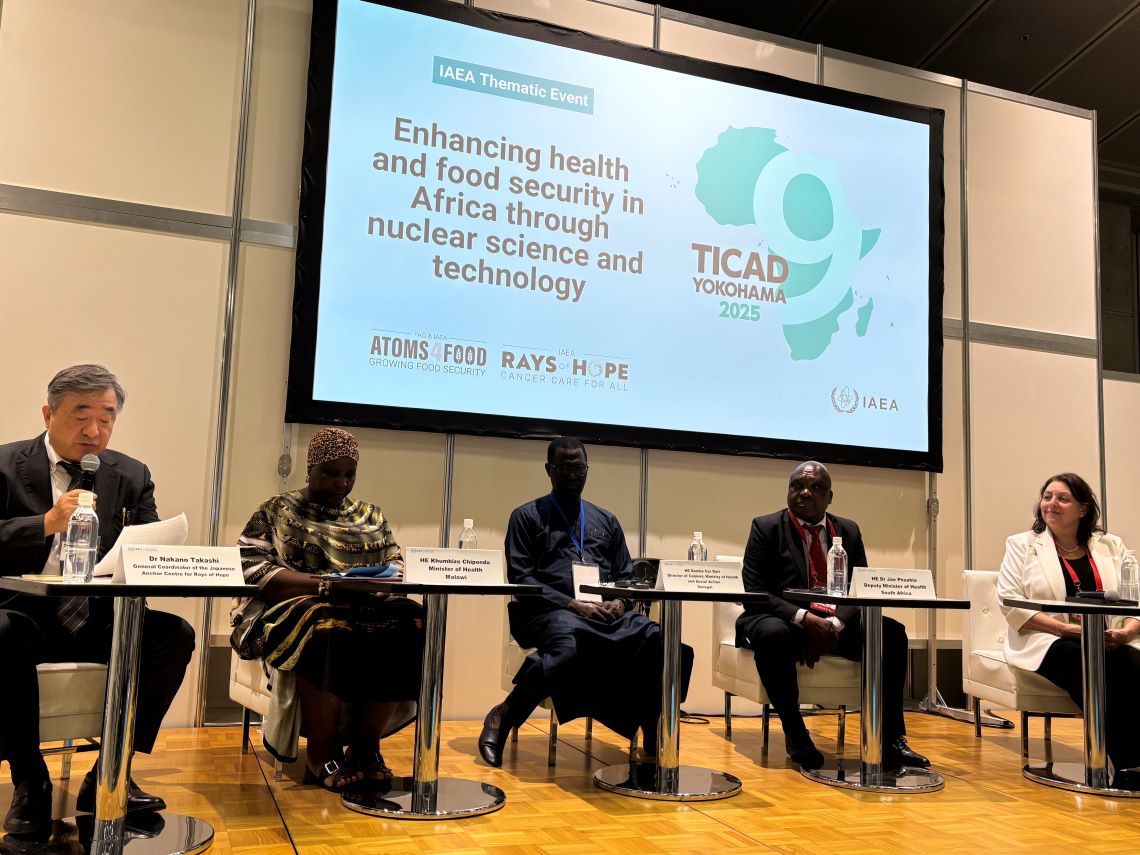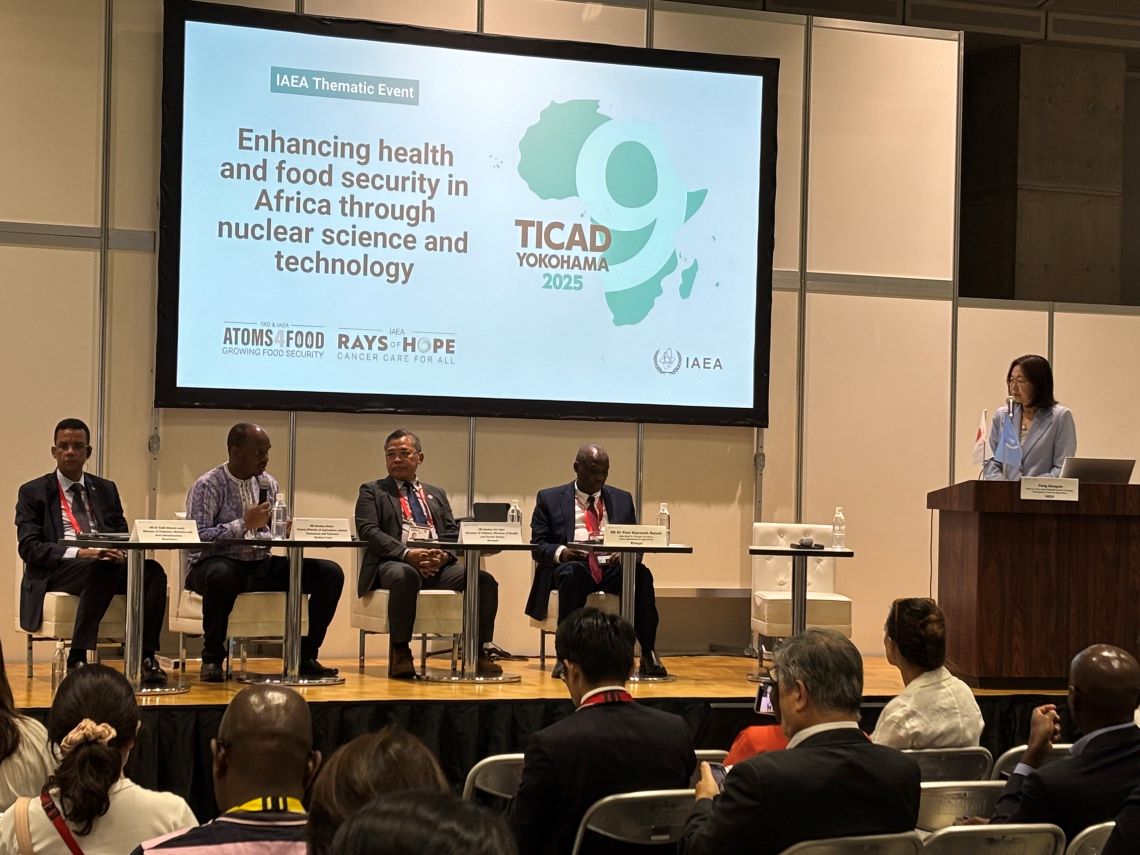The IAEA brought together high-level international speakers at the Ninth Tokyo International Conference on African Development (TICAD 9) to showcase how nuclear science and technology are advancing cancer care and food security on the African continent. At the IAEA thematic event last week, participants heard from ministers and senior representatives from Burkina Faso, Kenya, Malawi, Mauritania, Senegal and South Africa, as well as representatives of Japan and the Food and Agriculture Organization (FAO) of the United Nations. The speakers gave testimonials of the tangible results achieved in Africa in cancer care and food security through the IAEA’s flagship initiatives, Rays of Hope and Atoms4Food, and on the important role of the IAEA’s technical cooperation programme in advancing Africa’s sustainable development.
“Today’s event is about sharing successes, experiences and challenges, and building partnerships that deliver tangible, concrete projects through IAEA Rays of Hope and Atoms4Food initiatives. The IAEA is committed to ensuring that Africa benefits to the fullest from the peaceful applications of nuclear science and technology,” said IAEA Director General Rafael Grossi in his virtual opening remarks.
“Japan, attaching great importance to nuclear science and technology, has been proactively promoting international cooperation, including in Africa, under strong partnership with the IAEA. Japan stresses the cooperation in two important IAEA initiatives, namely Rays of Hope and Atoms4Food,” said Eri Arfiya, Vice Minister for Foreign Affairs of Japan during the event.
As of June 2025, Japan had contributed more than 10 million euros to the IAEA Rays of Hope initiative, with 5 million euros specifically supporting the procurement of mammography units for 22 African countries. A network of 16 cancer institutes and facilities across the country currently serves as a Rays of Hope Anchor Centre — a dedicated knowledge and capacity building hub which is creating regional and inter-regional opportunities for advancement. Japan has likewise supported the Atoms4Food initiative with about 6.6 million euros to support activities, including improving livestock production in C?te d’Ivoire and enhancing food safety in Mauritania.


